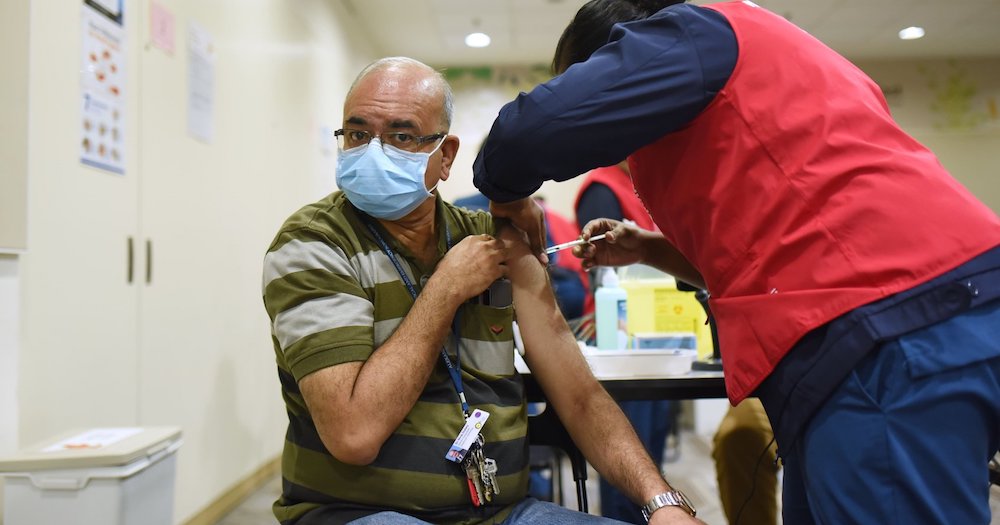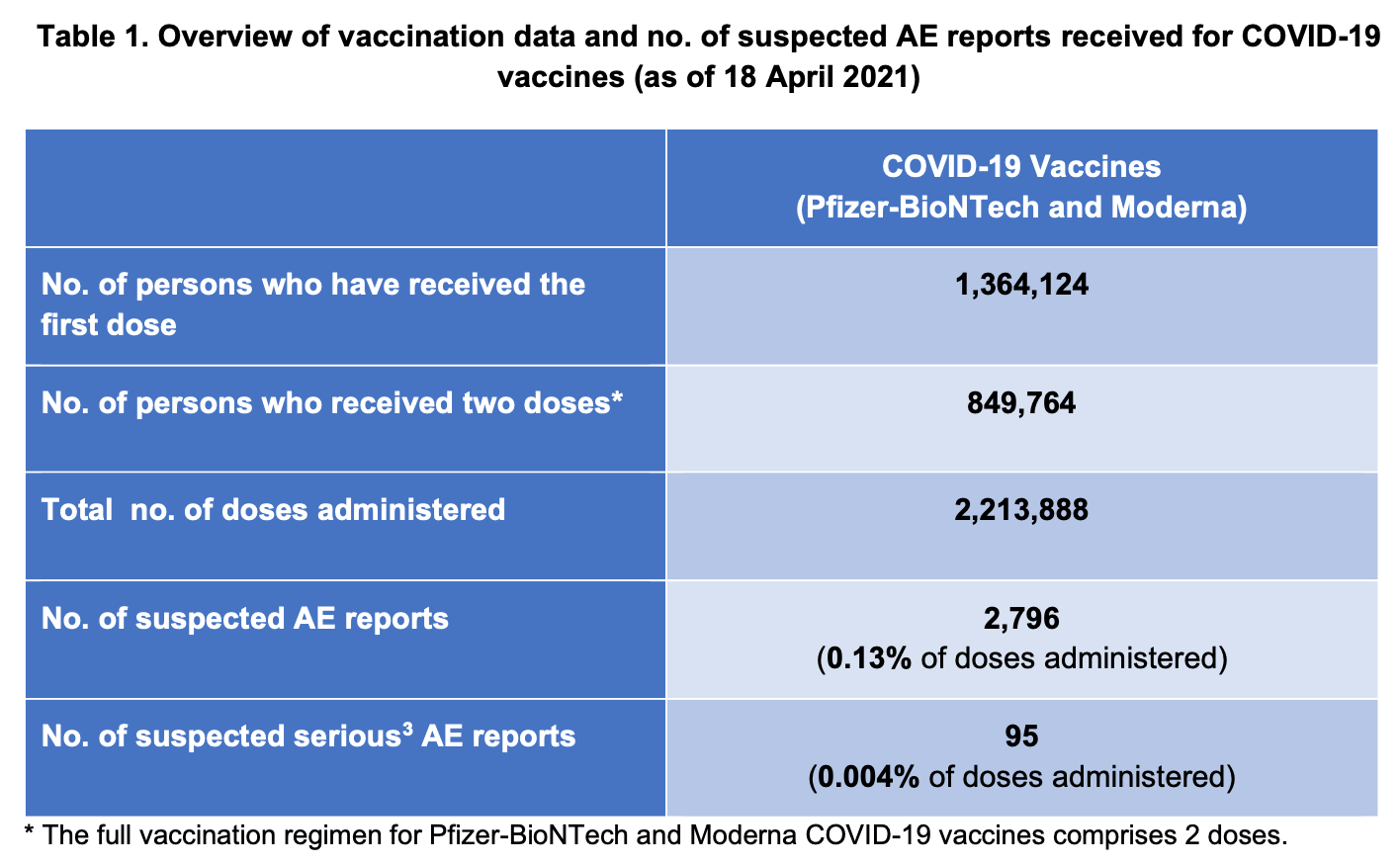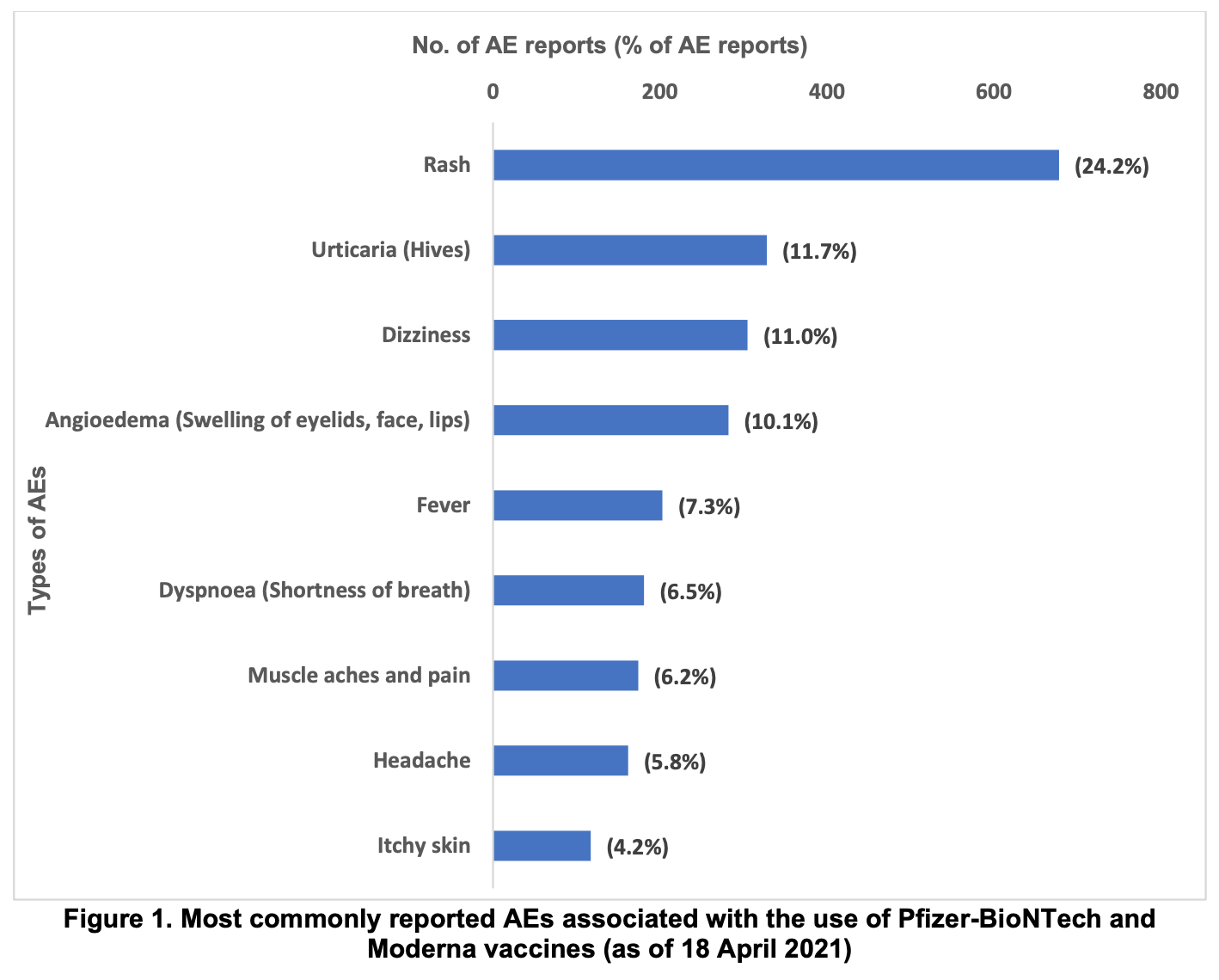Vaccine adverse reactions are very rare. But if you experience one, who's responsible?
ABC Radio National
/
By
Sarah Scopelianos, Anita Barraud and
Damien Carrick for the Law Report
Posted Yesterday at 3:00am, updated Yesterday at 7:47am
Australians over 50 are now eligible to receive the AstraZeneca vaccine.(
Getty: Paul Kane
)
Share
Serious adverse reactions to vaccines are extremely rare, but not unheard of.
As Australians wait to get their COVID jabs, they know the Therapeutic Goods Administration (TGA) is investigating several cases of rare blood clotting, which
the regulator says is likely linked to the AstraZeneca vaccine.
While the risks are very low, if you had a serious adverse reaction would you be able to access compensation?
What's an adverse reaction?
There's a big difference between expected side effects and serious adverse reactions, says Nicholas Wood from the Faculty of Medicine and Health at the University of Sydney.
AstraZeneca COVID-19 vaccine and blood clotting explained

Medical regulators are drawing a connection between the AstraZeneca vaccine and the rare side effect — but insisting it is safe. So what is going on?
Read more
"With any medicine there is a chance of having an adverse reaction," Dr Wood says.
"There are what we call side effects, which are the more common things, and then there are the adverse or severe events, which are much less common."
Dr Wood says it's not uncommon for people to experience fever, muscle pain or headaches after receiving the AstraZeneca shot, but that severe adverse effects in Australia are "overall rare".
"The more severe, rarer things like the clotting disorders are in the order of probably 20 to 40 per million people in the under 50 year olds, and even less common in those over the age of 50."
He says there's "very robust surveillance systems in place" to look out for adverse reactions to vaccines in Australia and internationally.
Australian health workers and vulnerable people are first in line to receive their COVID-19 jabs.(
Getty: Nigel Hallett
)
I've had an adverse reaction to a vaccine. Can I get compensation?
It depends.
Unlike about 25 other countries, including the United Kingdom and the United States, Australia does not have a no-fault vaccine injury compensation scheme.
Clare Eves, the head of Shine Lawyers' medical practice division, says Australians have very few rights of recourse if they have a serious adverse reaction to a vaccine administered correctly.
More stories from Law Report:
"We have had people in the past who've attended our office who've had a serious neurological adverse outcome from the flu vaccine for example, like Guillain-Barre syndrome. If they are in that really small minority, there's very little that they can do in terms of accessing compensation or support," Ms Eves says.
She says people may have rights to recourse if there's a "fault" in the way the vaccine has been produced or administered, if it's been tampered with, or it's found to be unsafe for general use.
Read our full coverage of the coronavirus pandemic
She stresses getting a vaccine from a "bad batch" is quite rare.
"Classic cases" where a person may have a case, she says, include where someone has been given a wrong dose, taken a vaccine orally when it shouldn't be given orally, or had a vaccine injected straight into the bloodstream instead of into the muscle.
"All vaccines have risks, and somebody's got to be that unlucky person that the risk falls upon," Ms Eves says.
The federal government has signed indemnity deals with two COVID-19 vaccine suppliers, including the University of Oxford, for the AstraZeneca jab, against liability for rare side-effects.
The details of the deals are unclear, but it appears the government would cover the bill for compensation if a member of the public won legal action against the drug company.
Mass vaccination centres have opened around the country.(
ABC News: Patrick Rocca
)
What happens in other countries?
New Zealand, the United Kingdom and the United States are just some examples of countries where people can apply for compensation for a vaccine injury.
Dr Wood says New Zealand runs its scheme under the Accident Compensation Corporation (ACC), a no-fault scheme which covers people involved in accidents or injured during healthcare treatment.
Listen to the podcast
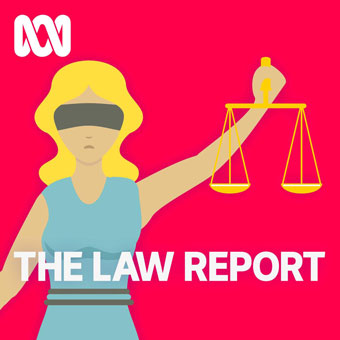
Informative, jargon-free stories about law reform, legal education, test cases, miscarriages of justice and legal culture.
Read more
"The person needs to show that the treatment led to the condition that they're experiencing and then they're entitled to compensation," he says.
The US runs the National Vaccine Injury Compensation Program (NVIC), also a no-fault system, where anyone who has received a covered vaccine and believes they have been injured as a result can file a petition and have their claim assessed.
Dr Wood says the process is more conciliatory than the usual adversarial nature of court.
"They have a vaccine injury table, and if your particular condition is listed on that table after that vaccine that's specified and in the right timeframe, then you're entitled to compensation," he says.
The system has paid out more than $US4 billion to roughly 6,430 people since the mid-1980s.
The UK runs the Vaccine Damage Payment scheme, which is more administrative than the US's court-based system.
Ms Eves says under the UK system, people are eligible to apply for a payment of up to 120,000 British pounds.
"How much you get does depend on the severity of that injury, but it doesn't cover indefinite costs," she says.
"So, it is a one-off lump sum tax-free payment."
What you need to know about coronavirus:
Is Australia considering a vaccine injury compensation scheme?
According to the federal Department of Health's website, the government isn't pursing a no-fault COVID vaccine injury compensation scheme.
"Serious side effects are extremely rare," it says.
"If you think you may be having an adverse reaction, you should seek immediate medical care."
Your COVID-19 vaccine questions answered
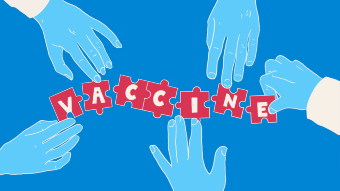
Got questions about the COVID-19 vaccines being used in Australia? We have answers.
Read more
It also states the government "strongly supports immunisation" but it is not compulsory, which means people have the right to choose to be vaccinated.
A Department of Health spokesperson said the government provides reimbursements to indemnity insurers for a range of health professionals who have had a claim against them due to a problem with the administration of any vaccine.
"If there is a problem with a vaccine itself, in Australia, the general legal position is that this is the responsibility of the manufacturer or supplier of the vaccine," the spokesperson said.
"The Australian government has agreed to certain indemnities with the COVID-19 vaccine manufacturers/suppliers. These indemnities are designed to operate if there are problems which flow from the vaccines themselves.
"However, in the event that a higher than expected number of claims associated with the vaccination effort arise or the measures currently in place prove to be insufficient, the government will take steps to ensure the necessary support of health practitioners."
Stay up-to-date on the coronavirus outbreak
If a vaccine injury scheme was implemented in Australia, what would it mean?
It might build trust.
Both Dr Wood and Ms Eves believe introducing a vaccine compensation scheme in Australia would go some way to increase public confidence in the coronavirus vaccine rollout.
Dr Wood says vaccine uptake has "certainty been rocked" by issues like the recent clotting issues.
"I think in terms of people's confidence, and willingness to take vaccines, having this as a safeguard, or a safety net, for the individual person is really essential," he says.




